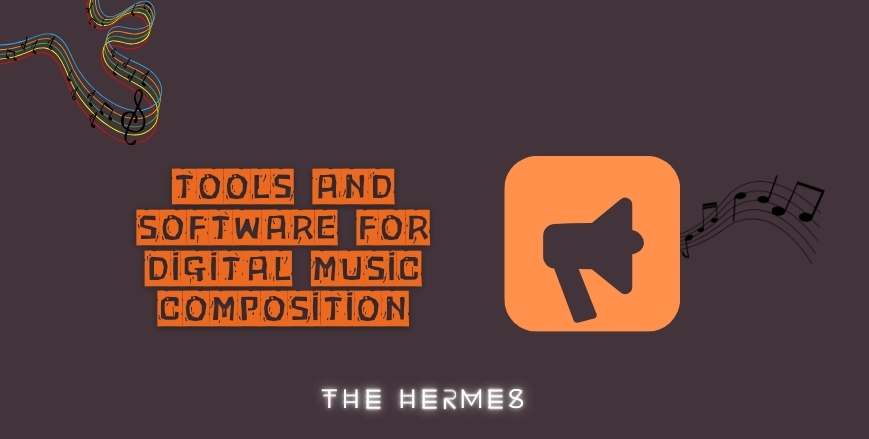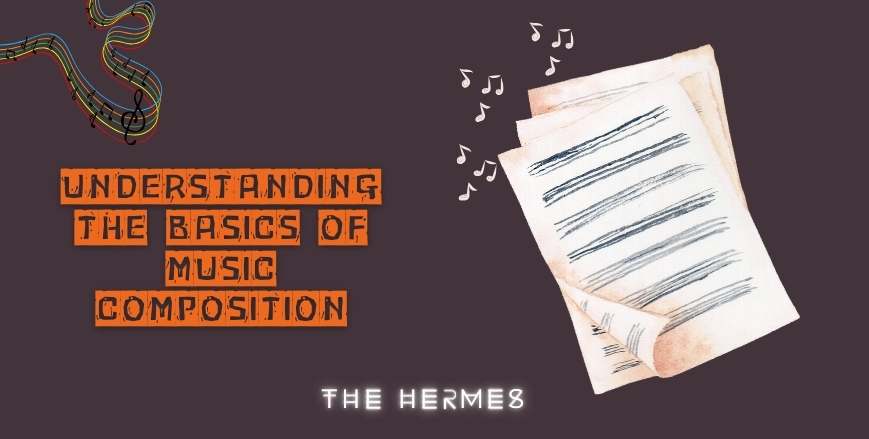
Stay
Updates
Sign up for our Newsletter
Stay up to date on exciting projects and upcoming events from The Hermes Music family.
[mc4wp_form id="903"]
Tips for Music Composition In the fast-evolving world of digital music production, mastering music composition is crucial for any aspiring producer. Whether you’re creating electronic beats, orchestral scores, or pop songs, understanding the fundamentals of music composition can significantly enhance the quality of your productions. This guide will provide essential tips to improve your composition skills, ensuring your music stands out in a crowded industry.
Why Tips for Music Composition Matters in Digital Music
Music composition is more than just arranging notes; it’s about crafting a piece that resonates with listeners, tells a story, and evokes emotion. In digital music production, composition serves as the foundation of your track, influencing everything from the arrangement to the final mix. A well-composed track is more likely to leave a lasting impression, making composition a critical aspect of the production process.
What is Music Composition?
Music composition involves creating a new piece of music by developing melodies, harmonies, rhythms, and structures that form a coherent and expressive work. It is an art form combining creativity, technical skill, and a deep understanding of musical theory.
The 5 Key Components of a Song
Every song typically consists of five key components:
Stages of Music Composition
Composing a song usually involves several stages:

Choosing the Right Digital Audio Workstation (DAW)
A Digital Audio Workstation (DAW) is essential for any music producer. It’s the software platform where you create, edit, and arrange your compositions. Popular DAWs like Ableton Live, FL Studio, Logic Pro, and Cubase offer various tools tailored for different styles of music production. When choosing a DAW, consider its workflow, features, and compatibility with your music style.
Virtual Instruments and Plugins
Virtual instruments and plugins are invaluable in digital music composition, offering a vast array of sounds, from realistic orchestral instruments to cutting-edge synthesizers. Plugins like Native Instruments’ Kontakt, Serum, and Omnisphere allow you to create unique sounds that can elevate your compositions. Experimenting with different plugins can inspire new ideas and help you find the perfect sound for your track.
MIDI and Sampling Techniques
MIDI (Musical Instrument Digital Interface) is a protocol that allows electronic instruments and computers to communicate. In digital composition, MIDI is used to control virtual instruments, creating melodies, harmonies, and rhythms. Sampling involves taking a portion of a sound recording and reusing it in a new composition. Both MIDI and sampling techniques are powerful tools that add depth and complexity to your music.
Starting with a Hook or Motif
A strong hook or motif is often the most memorable part of a song. It’s a short musical idea, phrase, or riff that catches the listener’s ear and keeps them engaged. Starting your composition with a hook gives you a solid foundation to build the rest of your track. Experiment with different melodic ideas and rhythms until you find something that stands out.
Layering and Arranging Sounds
Effective layering and arranging of sounds can turn a simple composition into a rich, dynamic track. Layering involves stacking multiple sounds to create a fuller and more complex texture. When arranging, consider the placement of different elements in the track and how they interact with each other.
Incorporating Chord Progressions
Chord progressions are the backbone of harmony in music composition, providing the structure on which melodies are built. Experimenting with different chord progressions can give your composition a distinct feel. Familiarize yourself with common progressions, but don’t be afraid to explore unconventional ones to create something unique.
 4. Overcoming Creative Blocks in Composition
4. Overcoming Creative Blocks in Composition
Experimenting with Different Genres
One of the best ways to overcome creative blocks is to experiment with different genres. Each genre has its own conventions and techniques, and exploring these can inspire new ideas. For instance, if you primarily compose electronic music, try your hand at a classical piece, or if you’re into pop, experiment with jazz. This cross-genre exploration can bring fresh perspectives to your work.
Collaborating with Other Musicians
Collaboration is a powerful way to break through creative barriers. Working with other musicians can introduce you to new ideas, techniques, and approaches. Whether it’s co-writing a song, producing a track together, or exchanging ideas, collaboration can stimulate creativity and help you see your music from a new angle.
Using Reference Tracks for Inspiration
Analyzing reference tracks can be a great source of inspiration. A reference track is a song you admire and want to emulate in some way, whether it’s the arrangement, production style, or overall vibe. Understanding its structure and elements can provide valuable insights you can incorporate into your own compositions.
Reviewing and Editing Your Composition
After completing your initial composition, take time to review and edit it. Listen to the track multiple times, paying attention to the flow, transitions, and overall coherence. Editing is an essential part of the creative process, allowing you to refine your ideas and ensure that the composition effectively communicates your vision.
Mixing and Mastering Considerations
Although mixing and mastering are distinct from composition, your compositional choices can significantly impact these stages. For example, how you arrange your instruments or the dynamics you use will affect how the track is mixed. Being mindful of these aspects during composition can make the mixing and mastering process smoother.
Exporting and Sharing Your Composition
Once your composition is finalized, it’s time to export and share it. When exporting, ensure that you choose the right file format and settings to preserve the quality of your work. Sharing your composition on platforms like SoundCloud, YouTube, or Spotify can help you reach a wider audience. Additionally, consider promoting your music through social media and networking with other musicians.
Stay up to date on exciting projects and upcoming events from The Hermes Music family.